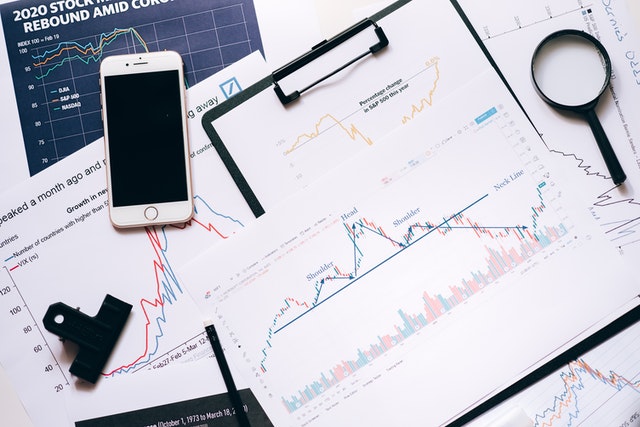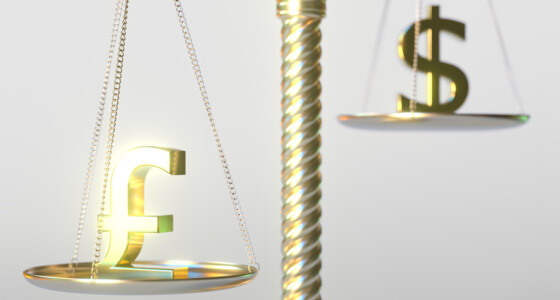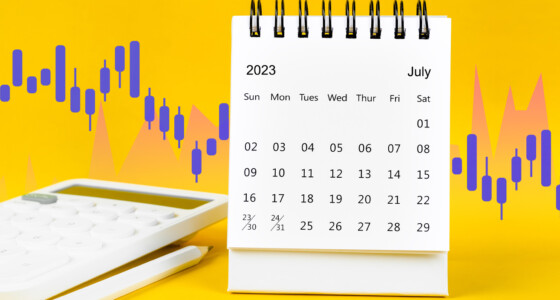

If you’re new to trading, you might wonder how best to invest your funds. You may also be wondering how much capital you need to get started, and whether or not this amount depends on the types of securities you’re interested in purchasing.
Now is as good a time as any to invest. At the moment, India is considered one of the leading countries in global economics. By 2025, the country is forecasted to become a $5 trillion USD economy.
This article will explain where it’s best to invest $100, $500, and $1000. Depending on how much capital you start with, your opportunities will look different, and certain investments may suit you better.
While you read, remember that it’s a good idea to invest in what you know. For example, if you don’t know the first thing about cryptocurrency, then investing in it probably isn’t the smartest idea.
Where to start investing with just $100
If you have $100 that you want to invest, your first step should be to find a good brokerage company. This shouldn’t be too problematic for you. Nowadays, brokers are everywhere – only instead of holding regular cash, they hold onto investments.
Since you are starting with just $100, you should invest in accounts with zero balance minimums and lower fees. Some brokers take as little as 0% commission for the trades, which will work great for you if you are just starting.
Keep in mind that some of the low-cost brokers may have “strings attached” to them. Sometimes, a first deposit minimum is not that bad if it helps you escape other costly fees. As long as you can fit it into your $100 budget, any investment should be profitable if you choose it right.
What type of account should you open
When it comes to investment accounts, there are multiple investment options to choose from. You just need to determine which one works best for you, and exactly why you are investing.
For example, if you are in it for the long term, then retirement accounts may be the best option. This includes a non-deductible IRA, along with a traditional and Roth IRA. However, if you are in it for the medium term, you should open a brokerage account or a tax-free mutual fund.
Consider whether you want a taxable or non-taxable account. You may be tempted to go sans tax, but depending on your needs, taxable may work better. For instance, if you are in it for the short term, then you may want to put your money into taxable accounts, as they often bring more returns.
Investment options to avoid
There are many companies out there that say you can begin investing with as little as $5. Many of those companies are indeed legit, so you should not discard them as scams. At the same time, you should keep a buyer mindset. Always know what you are getting yourself into.
For example, a broker may say that you can invest with only 5$, but they charge a fee every month if your account capital is under a certain minimum. If you pay those maintenance fees every month, then your returns will have to suffer.
When you choose an investment, make sure to avoid those with unnecessary maintenance fees. Very often, they try to lure you with low taxes, only to surprise you with hidden charges. Make sure that you do your research on the broker or a trading platform.

1. Forex
In Forex trading, the more capital you have to trade with, the better. But you can start with as little as $500 and still potentially make a return on your investments. You can invest even less than $500 to start with if you like, but that comes at the sacrifice of daily income and flexibility in trading. So, it’s recommended that you start with at least $500 in your account.
It’s always important to approach investing carefully, but this is especially true when you’re working with such a limited amount of cash. Don’t rush into placing your funds. Take the time to really get to understand the Forex market. If possible, find a broker that provides Forex trading simulations so that you can see how the market moves and fluctuates before investing funds in it yourself.
2. Stock market

Through exchange-traded funds (ETFs) and fractional shares, you can start investing in the stock market with as little as $500, and perhaps even less. But if you’re considering purchasing shares in an individual stock, $1,000 is a good amount to start with. This is riskier than investing in ETFs, but it also has the potential to be more rewarding if you place your funds wisely, especially if you invest in a company with a large dividend yield.
It’s worth keeping in mind that stocks usually trade in orders of 100 shares or more. This means that even at just $10 a share, you will still need $1,000 in your account to invest.
There is also the option of trading stocks through a contract for difference (CFD). Some brokers let their clients borrow half of the capital required for an investment, but you would still have to be able to produce the other half. This is called leverage, and it only applies to CFD trading.
3. Bond market
$1,000 is a good amount of capital to purchase bonds with. Investing in bonds usually isn’t as profitable as investing in stock, but it is safer. Besides, it’s always a good idea to diversify your portfolio, and investing in bonds is a relatively low-risk way of doing that.
Bonds are widely considered one of the safest ways to invest and are generally low-risk. The amount you earn from bonds varies depending on the kind of bond. It also depends on how soon you cash the bond out and whether or not you do so early.
Most bonds sell at the face value of $1,000. That said, it’s not unheard of for bonds to sell for less than this. This is dictated by how the bond’s interest rate compares to that of the market.
4. Commodities
As this article has pointed out already, diversification is important when it comes to investing. That’s why you should consider investing in commodities. When one invests in commodities, they aren’t purchasing gold bullions or barrels of oil. Rather, they’re buying shares of companies that manufacture commodities or trade commodities through brokers.
A benefit of investing in commodities is that they are usually more stable and less likely to fluctuate than stocks and bonds. This is because most commodities are bought out of necessity, thus ensuring they are consistently valued highly. While the stock market or bond market may fluctuate, you can usually rely on commodities to remain fairly consistent. This doesn’t mean there’s no risk at all, of course, but the risk is less than with other investments.
It should be noted, however, that this is not the case with all commodities. For example, oil is quite volatile and, often, more volatile than stock. Generally speaking, metals and agricultural assets provide stability, while more volatile assets such as oil are riskier but have higher opportunities for reward.
You can start small with investments in commodities, even with just $100. Even investing in commodities like oil can be reasonably affordable. Some well-known companies trade their oil for less than $100 a share.
5. Crypto
Of all the investment options out there, cryptocurrency is one of the best out there to invest in if you don’t have a great deal of capital. Some of the more popular coins out there can be expensive, but there are so many to choose from that you’re bound to find something in your price range, even if you’re spending as little as $100—or even less!
Some up-and-coming crypto coins are particularly cheap to invest in. When trying to decide what digital currency you should invest in, make sure to compare the market capitalization of the coins. This gives you a better idea of the performance of the coin than looking at the value alone.
One thing to keep in mind when trading crypto, however, is that some cryptocurrency exchanges charge higher trading fees than others. If you’re investing on a limited budget, you’ll want to pay close attention to trading fees and other costs associated with online crypto exchanges.
Conclusion
Many people have a preconceived notion that investment is just for the wealthy. Hopefully, after reading this article, you realize that investing can be a viable option even for those working on a tight budget.
Starting with a lot of capital is certainly useful. But if you trade cautiously and in the right market, there’s no reason why you can’t start off smaller. Some assets are easier than others to invest in with a smaller amount of capital—cryptocurrency and commodities, for example. But when it comes to the stock and bonds market, you can always make use of things like EFTs and fractional trading to invest your funds.
Hopefully, this article has helped spark some ideas about what you can invest in. Just make sure that whatever assets you invest in you exercise extreme caution, research thoroughly, and practice trading with a demo account first to familiarize yourself with the market.









